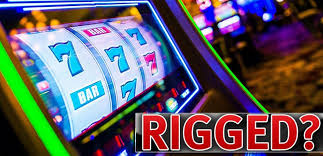The Ultimate World of Dafabet Casino and Esports Insights
5
2025 / 02 / 21
Slot machines are a staple in casinos worldwide, captivating players with their flashing lights and spinning reels. But have you ever wondered about the inner workings of these machines and whether they can be rigged or manipulated? In this guide, we'll dive into the mechanics behind slot machine algorithms, their odds, and how casinos ensure fairness—or where the line might blur. We'll also debunk common myths and reveal the truth about how casinos control slot machine payouts and probabilities.
At the heart of every slot machine is a Random Number Generator (RNG). This complex software program continuously generates numbers at high speeds, ensuring that each spin is random and independent of previous or future spins. When you press the spin button, the RNG determines the symbols that appear on the reels. This randomness is crucial for maintaining the integrity of the game and ensuring that players have a fair chance of winning.
Slot machine algorithms are the mathematical formulas that determine the outcomes of each spin. These algorithms balance the odds with payout percentages, making games fair yet profitable for casinos. The primary purpose of these algorithms is to ensure that each spin is unpredictable, preventing any patterns or biases from emerging. By carefully calibrating the algorithm, casinos can achieve a specific payback percentage, known as the Return to Player (RTP), which indicates the portion of the money wagered that is returned to players over the long term.
Slot machines undergo rigorous testing and certification by regulatory agencies and third-party testing firms to ensure fairness and transparency. These tests include compatibility testing, functional testing, localization testing, and penetration testing to verify that the machines operate correctly and securely. Additionally, casinos are closely monitored by state or tribal agencies to ensure compliance with minimum RTP requirements and fair play.
Despite the rigorous testing and certification processes, there are still common myths and misconceptions about slot machines. One prevalent myth is that slot machines can be "hot" or "cold," meaning they are more likely to pay out after a losing streak or less likely to pay out after a winning streak. However, this is not true; each spin is independent and random due to the RNG technology
